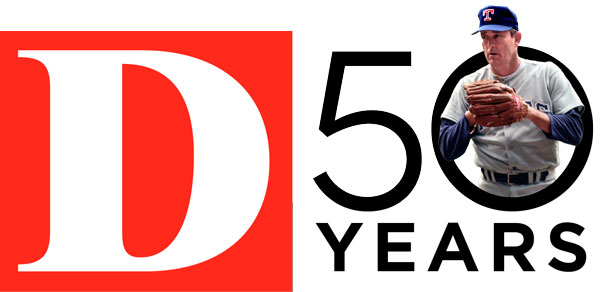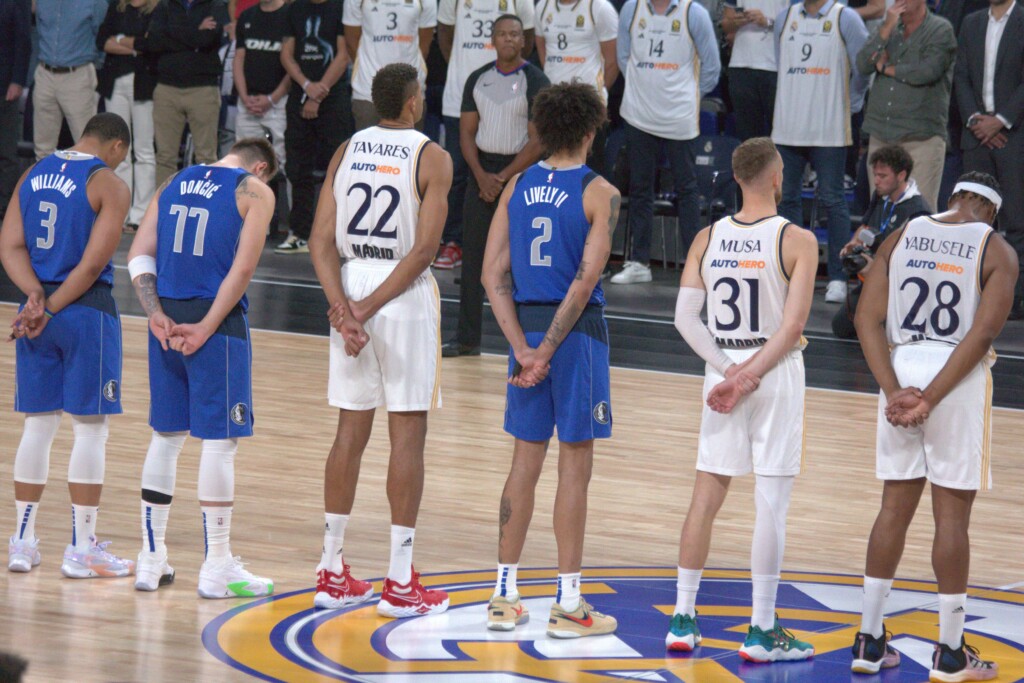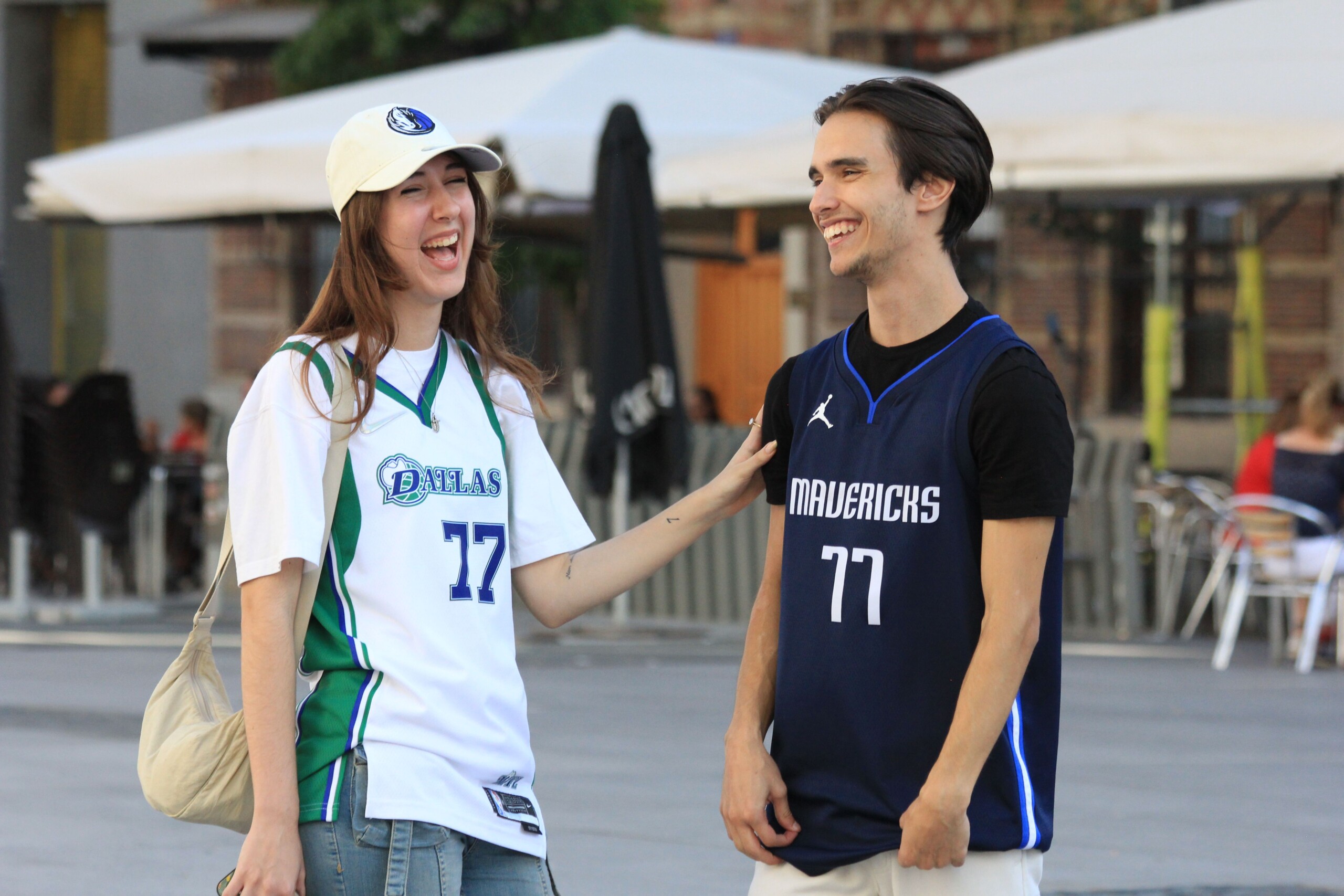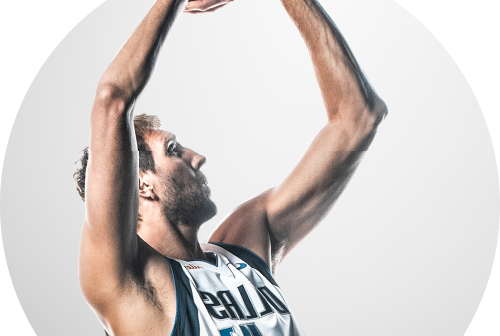At half past 11 on a Tuesday night, after the game and the final media session had concluded, I was attempting to navigate my way out of, and away from, the WiZink Center. The Mavericks had just lost to Real Madrid, 127-123, with Facu Campazo sealing the win in the last two minutes against the Mavericks’ third-stringers—a role Campazzo himself fulfilled for a short stretch last season in Dallas. This was the final game of a lengthy overseas preseason trip that featured three international exhibitions across two continents.
Inside the arena, all was quiet after an eventful night, but on the street outside, Calle de la Fuente del Berro buzzed like a bee hive. Metal roadblocks lined both sides of the street, with police and security personnel scrambling about. Loyal fans, standing behind the barriers, waited until midnight for one last opportunity to get a glimpse of their hero before he boarded the bus.
Luka Doncic was back in town.
The City
It would be inaccurate to characterize Madrid as the place where Doncic’s career began, not when he’s the son of Slovenian basketball royalty and his talents first came to light in his native country. Nor is it the place where he’s played under the brightest lights—that, of course, is Dallas, in the NBA.
But the 24-year-old’s third basketball home—and the one he spends the least time in these days after moving to Dallas five years ago—carries its own unique significance. Madrid is where Luka Doncic came of age.
He arrived in Madrid as a shy 13-year-old kid, unable to speak English or Spanish, but one who could wander the same streets anonymously. But with each passing year, the legend of the niño maravilla (wonder boy) grew in those same streets.
Javier Ortiz, a Spanish basketball chronicler and the author of a book about Doncic titled Luka Doncic, ha nacido un jugón, views Madrid as the perfect stage, a place that was big enough for Doncic’s talent and personality. “Madrid is a very open city,” Ortiz says. “You can be what you want here. Luka was extremely young when he arrived. But here, he discovered life and had the opportunity to shine. He learned everything about becoming a star in this city.”
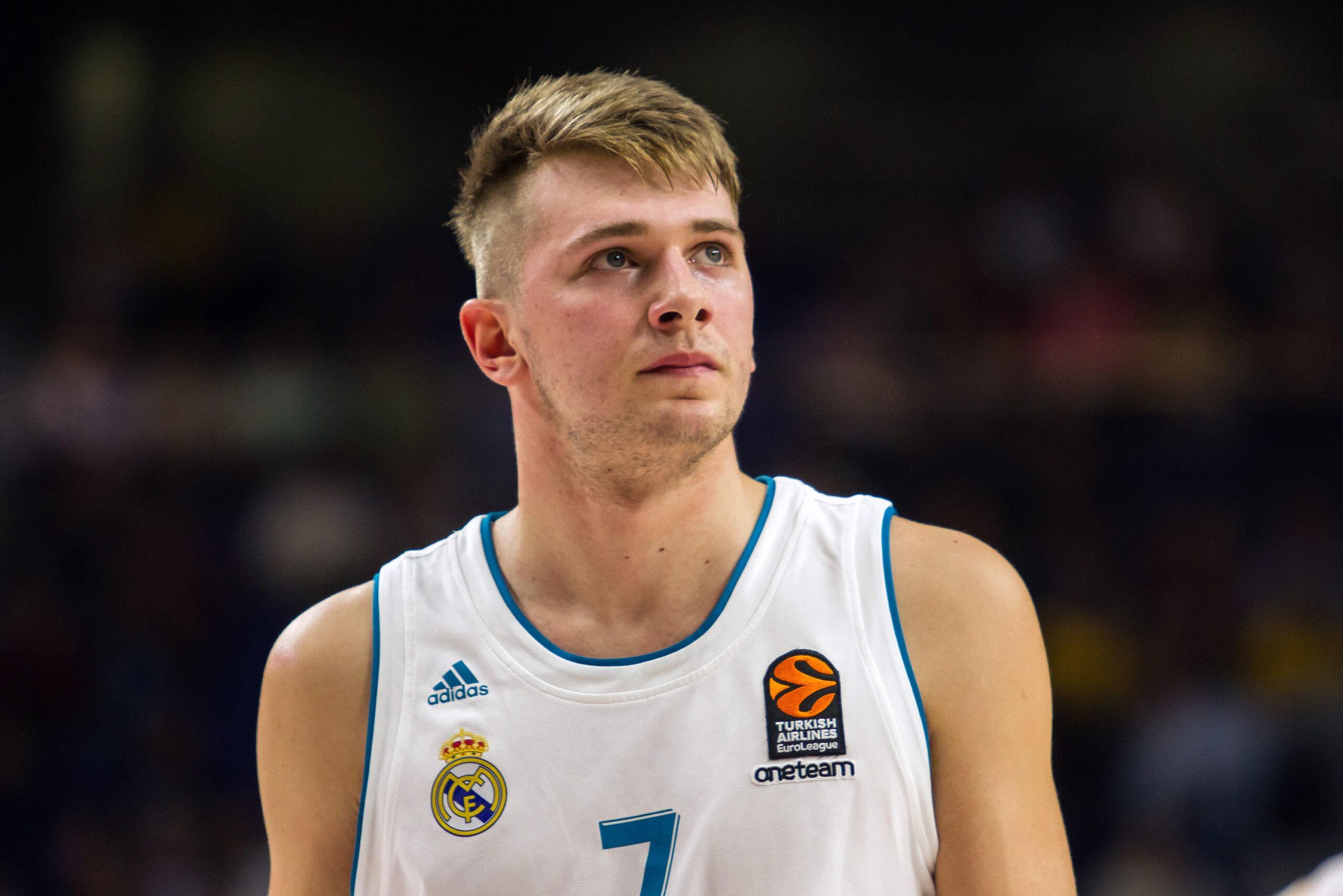
Enrique “Kiké” García, a journalist from Palencia and a Mavericks fan since 2003, sees a similar connection. “Madrid is a city that has a lot of people who are not from Madrid,” he says. “Some people even say that there is no one really from Madrid, most of the people there are from the rest of Spain or the rest of the world. And they are all welcomed in Madrid. So Luka is just another adopted madrileño.”
Madrid welcomed Doncic with open arms. Given his young age, Garcia notes that most Real Madrid fans and his former teammates view him as a son. Maybe even a younger brother.
The Club
There is another significant facet to Madrid’s cosmopolitanism: its renowned sports club. Madrid is the home of Real Madrid, arguably the world’s most illustrious sports club. And you can’t fully understand Luka Doncic if you don’t understand what Real Madrid means to the city.
Teresa, 23, is a true Madrileña, having been raised in the city after her family immigrated from Latin America when she was 4 months old. She is a huge fan of both Doncic and Real Madrid and has watched every Mavs game since Doncic started playing in the NBA. Describing her passion for the club, she says, “Becoming a Real Madrid fan was like a little girl falling in love with an epic tale of heroes always returning home victorious.” She adds, “It goes back to our parents and grandparents, who relished watching them clinch European trophies.”
Not only is Real Madrid the most decorated soccer club in Europe, holding the record for the most overall and Champions League trophies, the basketball counterpart—often perceived as the little brother — is the most successful club in European basketball, with 11 Euroleague titles, including in 2023. Simply put, Real Madrid is more than a club. In Spain, it’s an institution.
“The legend of Real Madrid also comes with a huge responsibility for people who put on the white jersey, and represent our badge,” Teresa says. “Success is expected of them.” Teresa emphasized the lofty expectations that Doncic and every other prodigy encounter upon joining the royal club. Only a few manage to reach them, but when they do they become legends to the fans. “Luka is a player who embodied those values from the moment he stepped on the court,” Teresa says. “And he did it with a smile on his face and joy that followed his every step. For me, it was incredible to see a boy my age, just 16, becoming a hero.”
Ramón, 29, is another basketball aficionado who has tracked Doncic’s ascent to stardom. Though he’s from Valladolid, a town about 120 miles northwest of Madrid, he resides and works in the Spanish capital. Doncic is his favorite athlete ever, and he proudly notes he has not missed a broadcast of a Doncic game in more than a decade. He created highlight videos from every game of the two seasons Doncic played with the Real Madrid first team and still keeps them on his computer like a golden treasure.
“I think one of the main reasons Real Madrid fans love Doncic is because he was so brave since he was a child,” Ramón says. “He left his family and his country as a 13-year-old to play in the best club in the world.” But bravery alone is not enough to make it in Madrid. Individual success and titles have to come with it, Doncic wasn’t lacking for either.
“He won every title and award with Real Madrid while always being the youngest player on the court,” Ramón says. “He surpassed all expectations even if he was the most scrutinized European prospect ever.”
The significance of the latter point is profound. Not only was Doncic the MVP and the best player on the 2018 EuroLeague and Spanish ACB League champions team: at 19, he was also a floor general on a team stacked with Spanish basketball icons and veterans including Sergio Llull, Rudy Fernandez, and Felipe Reyes. Drawing an NBA parallel, this would be like a rookie drafted by the Golden State Warriors leading Steph Curry, Draymond Green, and Klay Thompson to an NBA championship.
The Game
It is six hours before tipoff, and I’m sitting in Cervecería La Sureña, a small brewery on the fringes of the expansive Plaza Salvador Dalí, which faces the WiZink Center. A nearby Mavericks shop and special basketball court adorned with the Mavs logo are already filling up with kids, parents, and couples donned in many styles of Mavericks No. 77 jerseys.
I’m meeting up with Dani, a data engineer from Getafe, a city a few miles south of Madrid. For Dani, basketball was more than just a game—it was a dream. In fact, he once played against Doncic at the junior level when both were 14. “He didn’t have outstanding athleticism or height, but he just kept scoring, making it look absurdly easy,” Dani says. “You couldn’t do anything to stop him, and yet it seemed like he didn’t even run.” A few years later, Dani pivoted from basketball to pursue a data science career in Madrid. Today he manages a Twitter account dedicated to Mavericks basketball, with, no surprise, a focus on his basketball idol.
Just like Kike, Ramón, Teresa, and others, Dani had been eagerly anticipating this game for years. He was smart enough to buy tickets for himself and his sister as soon as the game was announced. Unsurprisingly, the game sold out quickly, with 12,763 people packing the arena.
However, mere minutes before tipoff the atmosphere in the arena changed as Marc Stein reported the Mavericks had decided to limit Luka to about five minutes in his homecoming game, due to a left calf strain.
The following morning, Garcia recapped the night with a chuckle: “I drove for a total of six hours and got home at 2:30 a.m. just to see five minutes of Luka. But I’m happy that I went.”
Now, Doncic did make the most out of those five minutes, draining a trio of three-point attempts and engaging in several back-and-forths with his pals Lull and Fernandez.
But this night was not about the game or basketball. It was about the celebration of the homecoming of El Niño Maravilla. “The boy has grown up and tomorrow we play against his Dallas Mavericks,” Lull tweeted before the game. “Let’s receive him as he deserves, he is one of ours.” The Spanish newspaper El Pais wrote: “Doncic left Spain as a 7 and will return home for one more night as 77.”
And what a celebration it was! It started with a special tribute video. And remember the adolescent who upon his arrival couldn’t speak a word of Spanish? Well, Doncic addressed the crowd in their native language. That prompted numerous Lu-ka, Lu-ka chants, a refrain that echoed through the building throughout the night. At one point fans joined in a song dedicated to Doncic. He shared moments with Real Madrid soccer stars Toni Kroos and Thibaut Courtois, who were sitting courtside, and had a special embrace with Real Madrid president Florentino Perez. The highlight came after the first quarter when Doncic was reunited at midcourt with the members of the 2018 championship team, who presented him with a replica of the EuroLeague trophy.
Doncic gleamed throughout the evening, a perpetual smile never leaving his face. “He was the happiest man in the arena,” Ortiz says.
The Love
Watching all this love manifest from up close, I had to wonder where it comes from. Doncic is clearly not the first prodigy who came to Madrid and enjoyed success. So why is he different?
Jorge Sierra, editor-in-chief at the popular basketball website HoopsHype, explained it simply: “These guys, if they show a little bit of love, they get a lot of love back. But most foreign players come and go and don’t care. Not Luka, though; he’s always showing love and support.”
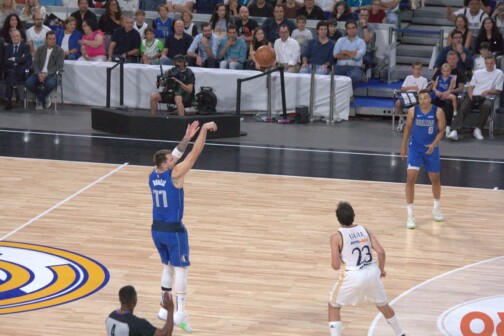
Doncic embraced Madrid. It seems as if he uses every opportunity to go above and beyond in showing his support for Real Madrid. “For a crazy Real Madrid fan like me, to see Luka being even more crazy than me is incredible,” Ramón says. “He watches not just the Euroleague games, but the ACB League games too. People here miss a lot of ACB games. But not Luka. He even put the Real Madrid anthem on the playlist in the Mavs facilities.”
Teresa describes Doncic as a Madridista to this very day. “Even though he’s no longer a Real Madrid player,” she says, “he never stopped being a part of the team.”
It’s not just the fans who feel this connection; his former teammates value the unwavering support of Doncic for “Los Blancos” even after his move across the Atlantic. “Luka is one of the best ambassadors of Real Madrid in the world,” Fernandez says. “This is why he’s a legend in Madrid.”
Doncic has never forgotten where he became an adult, and in turn, the city and country will always have his back. He may have been born Slovenian, and he may be a Dallasite now. But in Madrid, Javier says. “We view him as a Spanish boy. We sense that a piece of Spain has stayed with him.”
And he didn’t need to stay long for it to reappear.
Author

